
Neeraj Agarwal, MD, is now a distinguished member of the Fellows of the American Society of Clinical Oncology.

Your AI-Trained Oncology Knowledge Connection!


Neeraj Agarwal, MD, is now a distinguished member of the Fellows of the American Society of Clinical Oncology.
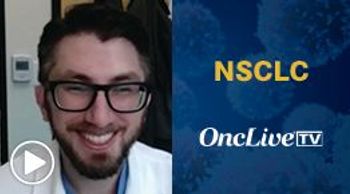
Brian Mitzman, MD, FACS, FCCP, discusses the use of adjuvant atezolizumab following platinum-based chemotherapy in patients with resectable non–small cell lung cancer.

TALAPRO-2 demonstrated that using talazoparib in combination with enzalutamide may reduce the risk of disease progression or death by 37%.

Brian Mitzman, MD, FACS, FCCP, discusses the emergence of immunotherapy as a treatment option for patients with early-stage non–small cell lung cancer.
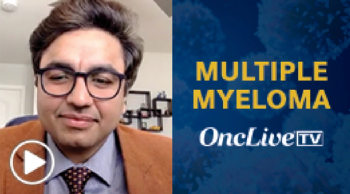
Amandeep Godara, MBBS, discusses CAR T-cell therapies currently available for patients with multiple myeloma.

Varghese, known for his innovative research in perioperative care and mentorship to physician-scientists, will become SUS President in February 2024.

Updated data from key trials in non–small cell lung cancer continue to demonstrate the superiority of immunotherapy and targeted therapy regimens for non–small cell lung cancer treatment, but the optimal use of these agents in the adjuvant vs neoadjuvant settings is still contested.
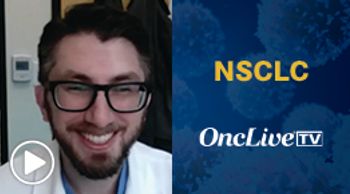
Brian Mitzman, MD, FACS, FCCP, discusses findings from the phase 3 CheckMate 816 trial in patients with resectable non–small cell lung cancer.
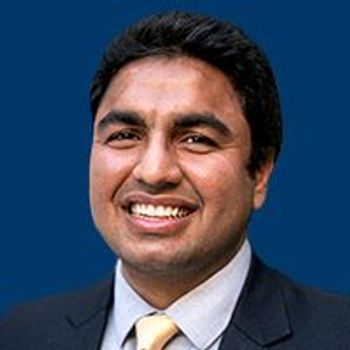
Amandeep Godara, MBBS, discusses the evolving treatment landscape in both early and late relapsed multiple myeloma, updated clinical trial results with CAR T-cell therapy, and key considerations when navigating treatment selection in this disease space.
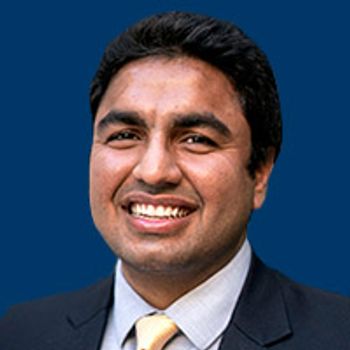
Amandeep Godara, MBBS, expands on the advantages and limitations of teclistamab monotherapy in patients with late-relapsed myeloma, discusses the best use of bispecific antibodies and CAR T-cell therapy in this population, and highlights ongoing efforts to mitigate the impact of treatment-related toxicities and improve accessibility across the paradigm.
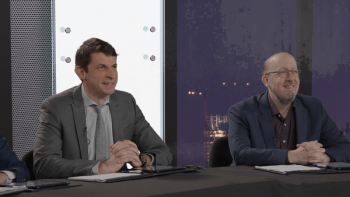
Experts in hematologic malignancies conclude their discussion by discussing BTK degraders and other targets in the treatment of mantle cell lymphoma.

Huntsman Cancer Institute at the University of Utah congratulates three of their newest endowed chairs.

A comprehensive look at the role of bispecific antibodies, including glofitamab, in the treatment of mantle cell lymphoma.

Bijal D. Shah, MD, and Matthew J. Matasar, MD, discuss how they approach treating patients with MCL who rapidly progress on BTK inhibitors.

Talazoparib plus enzalutamide generated a statistically significant and clinically meaningful improvement in radiographic progression-free survival vs placebo plus enzalutamide as first-line treatment for patients with metastatic castration-resistant prostate cancer, irrespective of homologous recombination repair status.
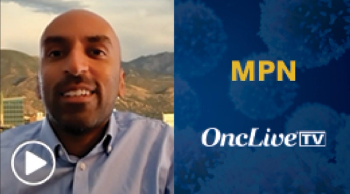
Sagar Patel, MD, discusses complications following allogeneic stem cell transplant that can occur in patients with myelofibrosis.

A panel of experts in hematologic malignancies analyze clinical studies and real-world data of brexucabtagene autoleucel in mantle cell lymphoma.

Alexey V. Danilov, MD, PhD, presents a second patient profile of a 60-year-old patient with MCL, and the panel discusses using CAR T-cell therapy to treat MCL.
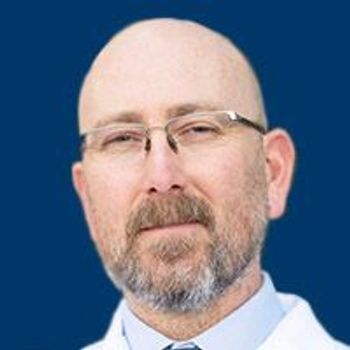
Findings from the MASTER trial in multiple myeloma could help shape how future treatment decisions are approached for fit, transplant-eligible patients.

A comprehensive discussion on ways to approach treating patients with high-risk mantle cell lymphoma.

A detailed look at how to select the appropriate BTK inhibitor to treat patients with MCL and the potential role of the non-covalent BTK inhibitor pirtobrutinib in MCL.

Experts in hematologic malignancies review the role of BTK inhibitors and other therapies in patients with relapsed/refractory mantle cell lymphoma.

A panel of experts in hematologic malignancies discuss the SHINE study, which looked at ibrutinib with bendamustine and rituximab in elderly patients with MCL.
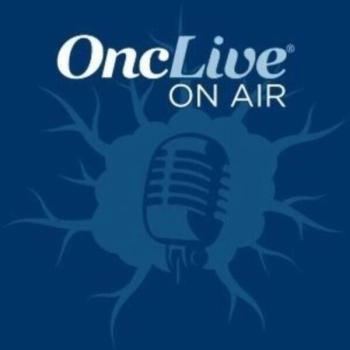
Dr Patel discusses post-transplant complications in myeloid disorders, the prevalence of these complications, and the most common ones that may arise, including primary disease relapse, graft-vs-host disease, infection, organ toxicity, persistent cytopenias, and immunosuppression.

Many cancer organizations across the United States and internationally acknowledge a need for in-novative uses of social technology to improve cancer-related support and information provision.

Retinoic acid receptor α, a gene overexpressed in approximately 30% of unfit patients with newly diagnosed acute myeloid leukemia, has emerged as a potential therapeutic target.

The addition of orteronel to androgen deprivation therapy vs bicalutamide improved progression-free survival and prostate-specific antigen response in patients with metastatic hormone-sensitive prostate cancer, but missed the primary end point of overall survival in the phase 2 SWOG-1216 trial.

Afaf E. Osman, MD, discusses the phase 3 SELECT-MDS trial in patients with higher-risk myelodysplastic syndrome.

Christos Vaklavas, MD, discusses the increasing emphasis on investigating tumor biology in breast cancer, plus the evolving treatment landscapes in HER2-positive breast cancer, hormone receptor–positive, HER2-negative breast cancer, and triple-negative breast cancer.

Cristina DeCesaris, MD, discusses classical indications for breast cancer radiation and how these methods are being contextualized in the contemporary treatment era.